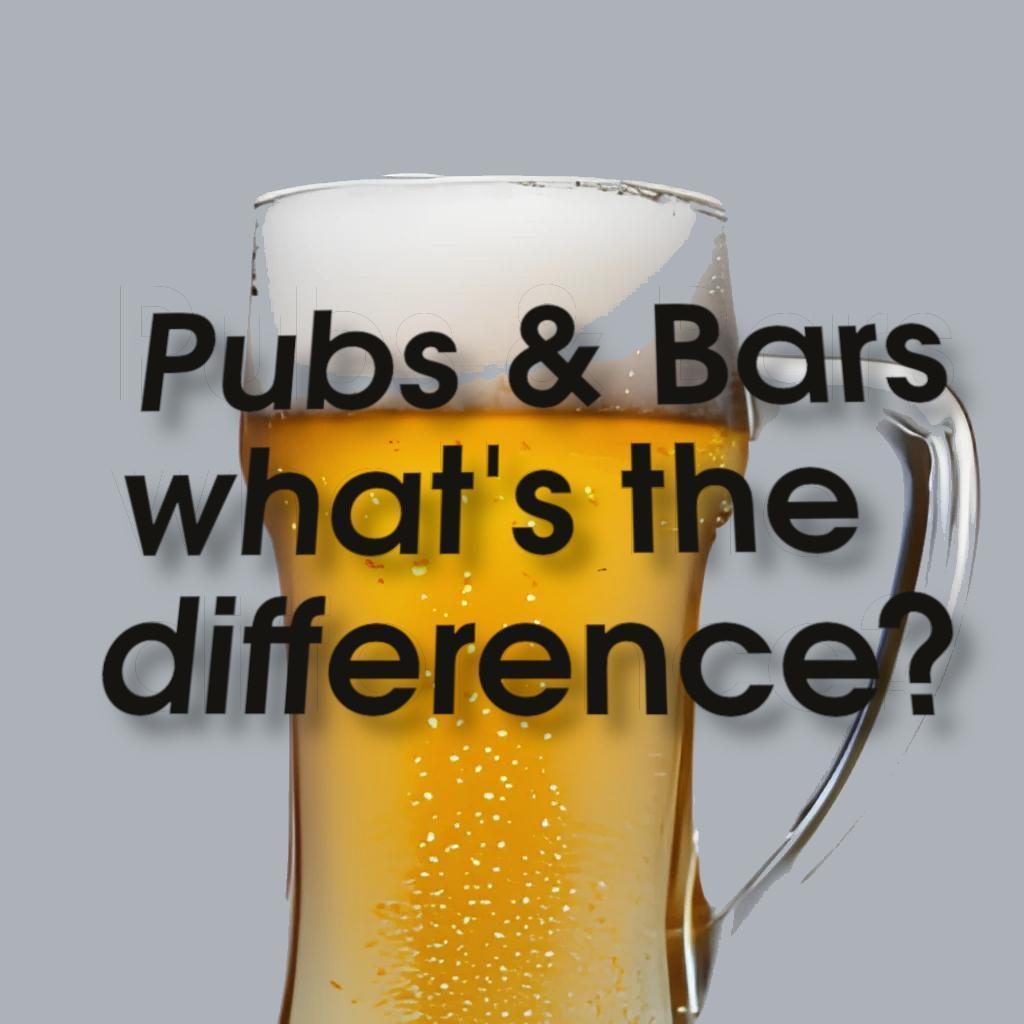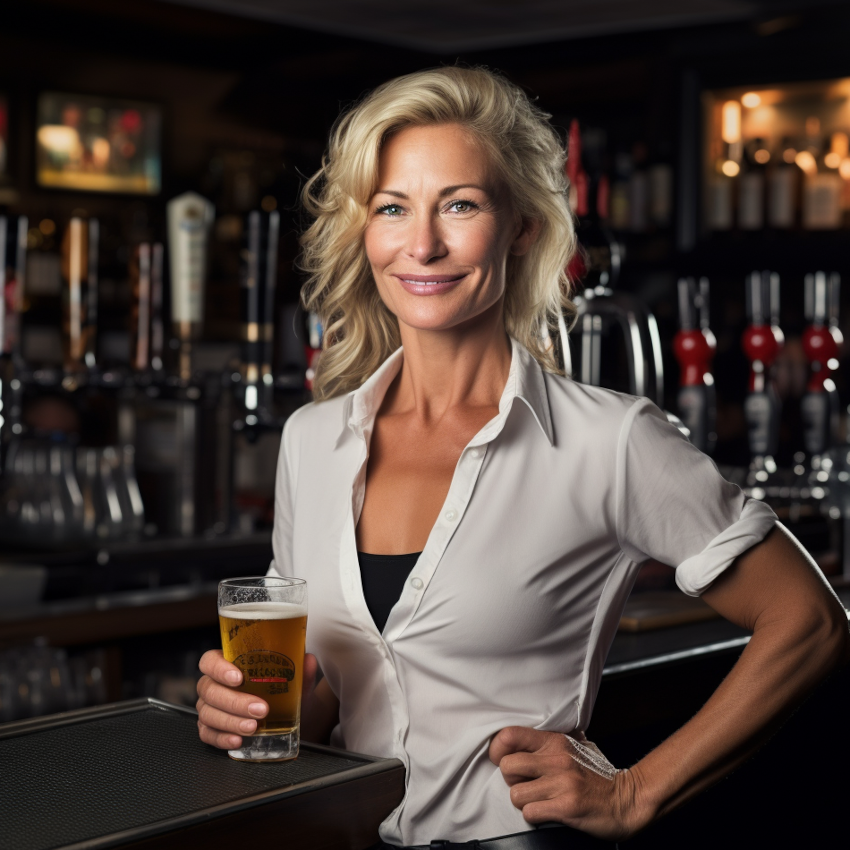


Tavern Tales:
The roots of bars and pubs extend deep into antiquity, with the term "pub" derived from "public house," capturing the communal nature of these establishments. In ancient civilizations, taverns were social hubs where locals gathered for libations and lively conversation.
Medieval Mead Houses:
During the medieval period, mead houses and alehouses proliferated across Europe. These establishments served as venues for both merriment and business negotiations. The advent of brewing guilds and the popularity of ale paved the way for the distinct pub culture that would emerge in England.
The English Pub Revolution:
In the 17th century, England experienced a pub revolution with the opening of public houses that offered not only drinks but also food and lodging. The pub became an integral part of British social life, a place where diverse classes mingled over pints of ale.
Prohibition and Speakeasies:
The 20th century brought about the era of Prohibition in the United States, but rather than stifling the spirit, it fueled the clandestine world of speakeasies. These hidden bars, often accessed through secret entrances, became synonymous with rebellion and the birth of cocktail culture.
Cocktail Renaissance and Global Trendsetting:
The latter half of the 20th century witnessed the rise of the cocktail culture, with iconic bars like Harry's Bar in Venice and The Rainbow Room in New York City setting the standard. The craft cocktail movement of the 21st century embraced innovation and quality ingredients, elevating mixology to an art form.
Modern Pubs and Cultural Hubs:
Today, bars and pubs have evolved into eclectic spaces, reflecting the diverse tastes of patrons. Craft breweries, rooftop bars, and themed pubs have proliferated, providing unique experiences for an ever-discerning clientele. Pubs remain cultural hubs, hosting live music, and trivia nights, and fostering a sense of community.
Bars and pubs are establishments that primarily serve alcoholic beverages, although many also offer food and other non-alcoholic drinks. While the terms "bar" and "pub" are often used interchangeably, there are some subtle differences between the two.
A bar is typically a smaller, more intimate establishment that serves a variety of alcoholic beverages, including beer, wine, and spirits. Many bars also offer a range of cocktails and mixed drinks, and some may specialize in a particular type of alcohol or cocktail. Bars are often frequented by locals and regulars, and they may have a more relaxed atmosphere than a pub.
A pub, on the other hand, is typically a larger establishment that serves a variety of alcoholic beverages, as well as food. Pubs are often associated with the culture of the United Kingdom and Ireland, and they are often designed to be cozy and inviting, with comfortable seating and a warm ambiance. Pubs may also host live music or other events, and they are often popular gathering places for locals and visitors alike.
Both bars and pubs have a long and storied history, and they continue to be important gathering places for people around the world. They are often seen as places to relax, socialize, and enjoy good food and drink in the company of friends and family. However, it's important to note that excessive drinking can have negative consequences for health and well-being, and it's important to drink responsibly and in moderation.
The terms "bar" and "pub" are often used interchangeably, but there are some subtle differences between the two that vary depending on the location and cultural context. Here are some of the main differences:
Size and atmosphere: Pubs are generally larger than bars and have a more relaxed and comfortable atmosphere. Pubs are often designed to be cozy and inviting, with comfortable seating and a warm ambiance, while bars may be more intimate and have a livelier atmosphere.
Food offerings: While both bars and pubs may offer food, pubs generally have a more extensive food menu than bars. Pubs often serve traditional pub fare, such as fish and chips, bangers and mash, and shepherd's pie, while bars may have a more limited food menu or no food menu at all.
Alcohol selection: While both bars and pubs serve alcoholic beverages, bars generally have a wider selection of alcoholic beverages, including a variety of cocktails and mixed drinks, while pubs may have a more limited selection of beer, wine, and spirits.
Music and entertainment: Bars are often associated with live music and other forms of entertainment, while pubs may have a quieter atmosphere and be less focused on entertainment.
Cultural associations: Pubs are often associated with the culture of the United Kingdom and Ireland, while bars are more commonly associated with the United States.
While these differences are not universal and can vary depending on the location and cultural context, they are some of the main distinctions between bars and pubs.
Bars and pubs can vary greatly depending on the country and cultural context. Here are some of the main types of bars and pubs found in different countries:
British pubs: Pubs are an important part of British culture, and they are often designed to be cozy and inviting, with traditional decor, comfortable seating, and a warm atmosphere. British pubs often serve ales and other types of beer, as well as traditional pub fare like fish and chips, bangers and mash, and pies.
Irish pubs: Irish pubs are similar to British pubs, but they often have a more lively atmosphere and are associated with live music and traditional Irish culture. Irish pubs typically serve a variety of beer, including Guinness and other stouts, as well as Irish whiskey.
German beer halls: Beer halls are a traditional German institution, and they are often large, communal spaces with long tables and benches. German beer halls serve a variety of beer, including lagers and pilsners, and often offer traditional German food like sausages and pretzels.
American sports bars: Sports bars are a popular type of bar in the United States, and they are often designed to be a place to watch live sports events on large-screen TVs. American sports bars typically serve a variety of beer and mixed drinks, as well as pub-style food like burgers, wings, and nachos.
Japanese izakayas: Izakayas are a type of Japanese pub that serve a variety of small plates, known as "izakaya food," along with beer, sake, and other drinks. Izakayas often have a lively, social atmosphere and are popular places for after-work gatherings and casual meals.
(!) Each country has its own unique drinking culture and traditions, and the types of bars and pubs reflect this diversity.
Here are some statistics about the most popular alcohol drinks in the world:
Beer is the most popular alcoholic beverage in the world, accounting for about 38% of global alcohol consumption. In 2019, the global beer market was valued at over $620 billion USD.
Wine is the second most popular alcoholic beverage in the world, accounting for about 28% of global alcohol consumption. In 2019, the global wine market was valued at over $300 billion USD.
Spirits, such as whiskey, vodka, and gin, account for about 23% of global alcohol consumption. In 2019, the global spirits market was valued at over $400 billion USD.
Other popular alcoholic drinks include cider, mead, sake, and traditional fermented beverages like chicha and pulque.
Alcohol restrictions vary widely by country and can include laws and regulations related to the sale, consumption, and production of alcoholic beverages. Here are some examples of alcohol restrictions in different countries:
Saudi Arabia: Alcohol is strictly prohibited in Saudi Arabia, and the country has some of the most stringent alcohol laws in the world. The penalties for drinking or possessing alcohol can be severe, including fines, imprisonment, and even public flogging.
United States: Alcohol restrictions in the United States vary by state, but the legal drinking age is 21 years old nationwide. Some states also have restrictions on the sale of alcohol, including limits on the hours during which it can be sold and restrictions on the sale of alcohol on Sundays.
Norway: Norway has some of the highest taxes on alcohol in the world, which makes it very expensive to buy. The legal drinking age is 18 years old for beer and wine, and 20 years old for spirits.
Iran: Alcohol is strictly prohibited in Iran, and the penalties for drinking or possessing alcohol can be severe, including fines, imprisonment, and even lashes.
From ancient taverns to modern mixology, the history of bars and pubs is a spirited tale of conviviality, rebellion, and cultural evolution. As these establishments continue to adapt to changing times, they retain their timeless role as places where people gather to unwind, connect, and raise a glass to the shared experience of life.
Please note!

We use cookies
We use cookies and other tracking technologies to improve your browsing experience on our website, to show you personalized content and targeted ads, to analyze our website traffic, and to understand where our visitors are coming from. Privacy Policy.